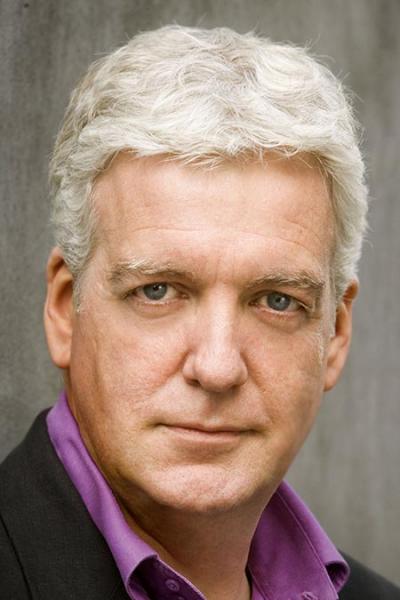/ Most Commented
ICANN Doubles Down on Technical Internet Governance Label: What Are the Implications?
 Back in September of 2020, ICANN CEO Göran Marby wrote a blog post discussing the implementation of "a common strategy for Internet governance (IG) and technical Internet governance (TIG)", raising the question of whether the ICANN org. intended to pursue this distinction moving forward, as debated in a previous article. This was proven to be the case during the 2020 IGF's Open Forum #44: "ICANN Open Forum - Technical Internet Governance", organized by ICANN itself... more
Back in September of 2020, ICANN CEO Göran Marby wrote a blog post discussing the implementation of "a common strategy for Internet governance (IG) and technical Internet governance (TIG)", raising the question of whether the ICANN org. intended to pursue this distinction moving forward, as debated in a previous article. This was proven to be the case during the 2020 IGF's Open Forum #44: "ICANN Open Forum - Technical Internet Governance", organized by ICANN itself... more
- Mark Datysgeld
- Comments: 3
- Views: 12,056
A Brief Look at the Domain Attack Surface of Streaming Media Companies
 The term "attack surface" is often heard in cybersecurity conversations. It refers to the sum of all possible attack vectors or the vulnerabilities that threat actors can exploit to penetrate a target network or damage an organization somehow. An unused and forgotten subdomain, for instance, can become an attack vector when taken over. Certain categories of companies have very large attack surfaces. Such is the case of streaming media businesses like Netflix and HBO Max. more
The term "attack surface" is often heard in cybersecurity conversations. It refers to the sum of all possible attack vectors or the vulnerabilities that threat actors can exploit to penetrate a target network or damage an organization somehow. An unused and forgotten subdomain, for instance, can become an attack vector when taken over. Certain categories of companies have very large attack surfaces. Such is the case of streaming media businesses like Netflix and HBO Max. more
- Jonathan Zhang
- Comments: 3
- Views: 41,124
2020 Hindsight After 20 Years at ICANN
 After two decades of involvement with ICANN, I am stepping down from the Board of Directors, where I served for nine years. I have spent considerable time of late reflecting on the past 20 years, and I have isolated some memories that help frame my time with ICANN. ... November 2000, ICANN07 in Marina del Rey, California - With only a scant idea of what ICANN is all about, I am warmly welcomed by the flag-wearing country code top-level domain (ccTLD) community, who come to ICANN to ensure that nothing happens to affect the independence of ccTLDs... more
After two decades of involvement with ICANN, I am stepping down from the Board of Directors, where I served for nine years. I have spent considerable time of late reflecting on the past 20 years, and I have isolated some memories that help frame my time with ICANN. ... November 2000, ICANN07 in Marina del Rey, California - With only a scant idea of what ICANN is all about, I am warmly welcomed by the flag-wearing country code top-level domain (ccTLD) community, who come to ICANN to ensure that nothing happens to affect the independence of ccTLDs... more
- Chris Disspain
- Comments: 3
- Views: 11,683
The Whois Wars Go On
 There is a lot of discussion about the Expedited Policy Development Process (EPDP) Phase 2 report on evaluating a System for Standardized Access/Disclosure (SSAD) to non-public gTLD registration data after the decisions taken by the GNSO Council on September 24th. Notably, the Business Constituency (BC) and the Intellectual Property Constituency (IPC) have voted against the adoption of the Final Report of the EPDP team. more
There is a lot of discussion about the Expedited Policy Development Process (EPDP) Phase 2 report on evaluating a System for Standardized Access/Disclosure (SSAD) to non-public gTLD registration data after the decisions taken by the GNSO Council on September 24th. Notably, the Business Constituency (BC) and the Intellectual Property Constituency (IPC) have voted against the adoption of the Final Report of the EPDP team. more
- Thomas Rickert
- Comments: 3
- Views: 14,162
First Round of U.S. Layoffs Due to Huawei Blockade
Neophotonics, the Nasdaq-listed producer of various optical communications products, including silicon photonics and photonic integrated circuits (PICs), warned investor this week that the new restrictions on business with China's Huawei - its largest customer - could have a major impact on future sales. more
- CircleID Reporter
- Comments: 3
- Views: 24,831
Too Little, Too Late? Why ICANN’s Proposed WHOIS Access System Isn’t Worth It
 After two years of grueling, complex and contentious debate, the ICANN EPDP team delivered its Phase 2 Final Report on July 31st, 2020. Unfortunately, and disappointingly, the policy recommended for the so-called "System for Standardized Access/Disclosure" (SSAD) fails to meet the needs of the users it supposedly is designed to benefit. more
After two years of grueling, complex and contentious debate, the ICANN EPDP team delivered its Phase 2 Final Report on July 31st, 2020. Unfortunately, and disappointingly, the policy recommended for the so-called "System for Standardized Access/Disclosure" (SSAD) fails to meet the needs of the users it supposedly is designed to benefit. more
- Alex Deacon
- Comments: 3
- Views: 12,453
Implementing Natural Language Processing in Your SMB Organization: Now or Never!
 If you have already adopted AI in your small or mid-size organization, congratulations. If not, the urgency of adopting should be a top priority. You will become a laggard and most likely obsolete given the supercycle of innovation we are currently in. Implementing AI is quite different from other organization-wide strategies because it involves highly specific characteristics and expert resource pools that SMBs might not be able to access. more
If you have already adopted AI in your small or mid-size organization, congratulations. If not, the urgency of adopting should be a top priority. You will become a laggard and most likely obsolete given the supercycle of innovation we are currently in. Implementing AI is quite different from other organization-wide strategies because it involves highly specific characteristics and expert resource pools that SMBs might not be able to access. more
- Fred Tabsharani
- Comments: 3
- Views: 10,814
Time to Stop Talking About Unserved and Underserved
 I work with communities all of the time that want to know if they are unserved or underserved by broadband. I've started to tell them to toss away those two terms, which is not a good way to think about broadband today. The first time I remember the use of these two terms was as part of the 2009 grant program created by the American Recovery & Reinvestment Act of 2009. The language that created those grants included language from Congress that defined the two terms. more
I work with communities all of the time that want to know if they are unserved or underserved by broadband. I've started to tell them to toss away those two terms, which is not a good way to think about broadband today. The first time I remember the use of these two terms was as part of the 2009 grant program created by the American Recovery & Reinvestment Act of 2009. The language that created those grants included language from Congress that defined the two terms. more
- Doug Dawson
- Comments: 3
- Views: 10,111
Freedom of Expression Part 1: Hate Speech, Linehan, Trans as a Protected Class in California
 Graham Linehan was banned from Twitter last week. Graham Linehan is an Irish writer and creator of Father Ted and Black Books. Twitter closed Graham Linehan's account for tweeting "men aren't women though" which twitter perceived as "hate speech" and offensive to the Trans community. Context always shapes meaning, and so I thought it would be useful to explore how hate speech is interpreted in California and then to see how it is treated in Fiji. more
Graham Linehan was banned from Twitter last week. Graham Linehan is an Irish writer and creator of Father Ted and Black Books. Twitter closed Graham Linehan's account for tweeting "men aren't women though" which twitter perceived as "hate speech" and offensive to the Trans community. Context always shapes meaning, and so I thought it would be useful to explore how hate speech is interpreted in California and then to see how it is treated in Fiji. more
- Salanieta Tamanikaiwaimaro
- Comments: 3
- Views: 23,245
Top-Level Domain Bias in Search Engine Indexing and Rankings
 As a search engine optimization (SEO) and domain name consultant, one of the questions I get asked most often about domain names is whether or not the domain name or TLD (Top-Level Domain) matters. Will the domain name ending have an effect on SEO or search engine rankings. Are certain domain name endings preferred by the search engines over other domain name extensions? I decided to answer this question... more
As a search engine optimization (SEO) and domain name consultant, one of the questions I get asked most often about domain names is whether or not the domain name or TLD (Top-Level Domain) matters. Will the domain name ending have an effect on SEO or search engine rankings. Are certain domain name endings preferred by the search engines over other domain name extensions? I decided to answer this question... more
- Bill Hartzer
- Comments: 3
- Views: 18,749
A Short History of Internet Protocol Intellectual Property
 A little over 25 years ago, the Internet Society proposed that they assume responsibility for the DARPA Internet Protocol (IP) specifications Intellectual Property Rights (IPR) that were being evolved by the Internet Engineering Task Force (IETF) to facilitate their use by the mainstream network communication standards bodies and providers. Last week, the IETF, in an attempt to fend off alternative Internet Protocols emerging in the 5G ecosystem and create a standards monopoly, asserted... more
A little over 25 years ago, the Internet Society proposed that they assume responsibility for the DARPA Internet Protocol (IP) specifications Intellectual Property Rights (IPR) that were being evolved by the Internet Engineering Task Force (IETF) to facilitate their use by the mainstream network communication standards bodies and providers. Last week, the IETF, in an attempt to fend off alternative Internet Protocols emerging in the 5G ecosystem and create a standards monopoly, asserted... more
- Anthony Rutkowski
- Comments: 3
- Views: 16,342
Namecheap, EFF and the Dangerous Internet Wild West
 This past week I had two items pop up on my alerts. The first was about Facebook suing domain registrar Namecheap for allowing domains that impersonate the social media company and can be used for scams. The second was a plea by the Electronic Frontier Foundation to join in its crusade to stop the sale of the .ORG domain. It took me a moment to realize these are linked. more
This past week I had two items pop up on my alerts. The first was about Facebook suing domain registrar Namecheap for allowing domains that impersonate the social media company and can be used for scams. The second was a plea by the Electronic Frontier Foundation to join in its crusade to stop the sale of the .ORG domain. It took me a moment to realize these are linked. more
- David McConnell
- Comments: 3
- Views: 18,852
5G Leadership Reality Check: January 2020
 As we embark on a new year and decade, it seemed worthwhile to take a peek at the principal forums for global 5G industry technical collaboration and do a quick assessment of what is occurring and who are the "leaders." The leadership dimension is especially relevant in Washington these days – which is suffering from a peculiar 5G dementia. As the year ended, there were no less than 35 current 5G related Congressional legislative actions, several of which actually passed one of the chambers. more
As we embark on a new year and decade, it seemed worthwhile to take a peek at the principal forums for global 5G industry technical collaboration and do a quick assessment of what is occurring and who are the "leaders." The leadership dimension is especially relevant in Washington these days – which is suffering from a peculiar 5G dementia. As the year ended, there were no less than 35 current 5G related Congressional legislative actions, several of which actually passed one of the chambers. more
- Anthony Rutkowski
- Comments: 3
- Views: 11,371
Kenya’s .KE Domain Registrations Nearing 100,000 Mark, but It Can Do Better – Here’s Why
 Over the years, the Kenyan Network Information Center (KeNIC) has struggled to reach the 100,000 mark in .ke Kenya country code domain registrations. Many reasons have been given for this shortfall, among them pricing, competition from generic Top-Level Domains (gTLDs) like .com and .org, and also competition from Geographic domains like the new .africa. Also, not opening up the second level for registration has been cited as one of the reasons for the low number. more
Over the years, the Kenyan Network Information Center (KeNIC) has struggled to reach the 100,000 mark in .ke Kenya country code domain registrations. Many reasons have been given for this shortfall, among them pricing, competition from generic Top-Level Domains (gTLDs) like .com and .org, and also competition from Geographic domains like the new .africa. Also, not opening up the second level for registration has been cited as one of the reasons for the low number. more
- Mwendwa Kivuva
- Comments: 3
- Views: 11,016
A Short History of DNS Over HTTP (So Far)
 The IETF is in the midst of a vigorous debate about DNS over HTTP or DNS over HTTPS, abbreviated as DoH. How did we get there, and where do we go from here? (This is somewhat simplified, but I think the essential chronology is right.) Javascript code running in a web browser can't do DNS lookups, other than with browser.dns.resolv() to fetch an A record, or implicitly by fetching a URL which looks up a DNS A or AAAA record for the domain in the URL. more
The IETF is in the midst of a vigorous debate about DNS over HTTP or DNS over HTTPS, abbreviated as DoH. How did we get there, and where do we go from here? (This is somewhat simplified, but I think the essential chronology is right.) Javascript code running in a web browser can't do DNS lookups, other than with browser.dns.resolv() to fetch an A record, or implicitly by fetching a URL which looks up a DNS A or AAAA record for the domain in the URL. more
- John Levine
- Comments: 3
- Views: 12,803